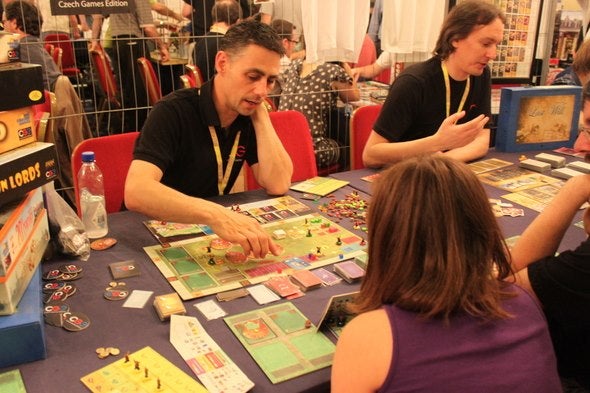What's it like to be a board game tester?
Paul Grogan gave up his job as an IT manager to become one of the few professional board game testers in the UK

Paul Grogan isn't as busy as you'd imagine a board game tester would be in the run-up to Christmas. While he once enjoyed playing Monopoly and Cluedo, he wouldn't dream of testing them now. "I think they are a waste of time. No thought goes into playing them."
Grogan gave up his day job as an IT manager earning £45,000 a year to pursue his gaming passion. "It's a risky move, but I haven't looked back," he says. He now earns half the money testing advanced board games, which are played by fanatics throughout the year.
The games, which include titles such as Ticket To Ride and The Settlers of Catan, are growing in popularity in the UK. They involve a "high level of decisionmaking" and much more strategy than the likes of Trivial Pursuit.
Grogan tests prototypes with his friends, and is proud of the frank feedback he gives to designers and publishers. "I am English and from the North. My blunt honesty has got me into a lot of trouble over the years. If it was a horrible game to play, I will say that. I don't pretty things up."
He is also often asked to write rule books, and tests out whether they work by creating the game electronically and playing it with friends online via Skype. "It is a nerve-wracking feeling when it's your name to the rule book."
The games typically cost £25 to £70 to buy. "It is quite high, but you'd pay that on a night out once you've had your drinks and kebab on the way home."
Grogan is pleased board games have survived in today's digital age. "It's real-life interaction, and you can't beat that. Video games are not quite the same." If he was given all the money in the world, he says he would test Monopoly - and give the publisher his usual, honest views as he does with every other game.
"It wouldn't be very good feedback. I would change the roll-and-play, that's old school. And I would re-write it so it didn't take so long."
Bookmark popover
Removed from bookmarks